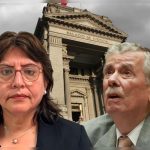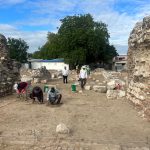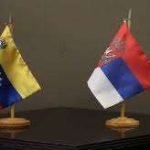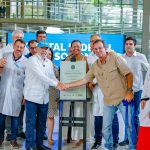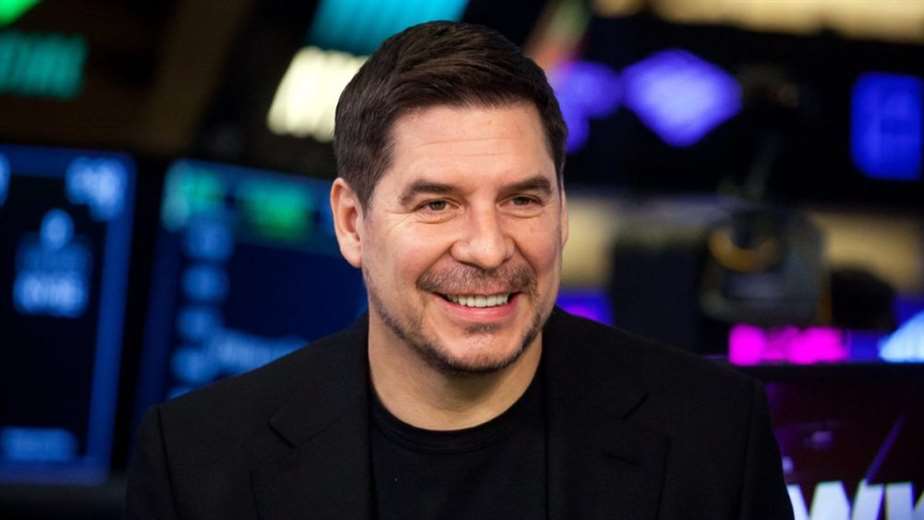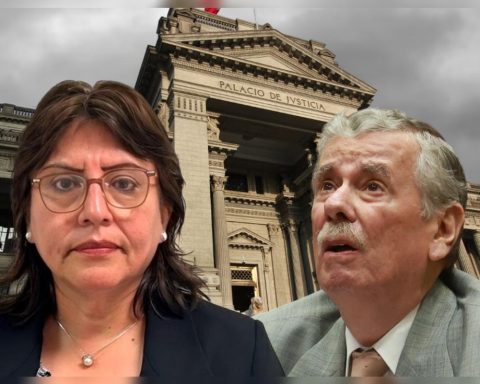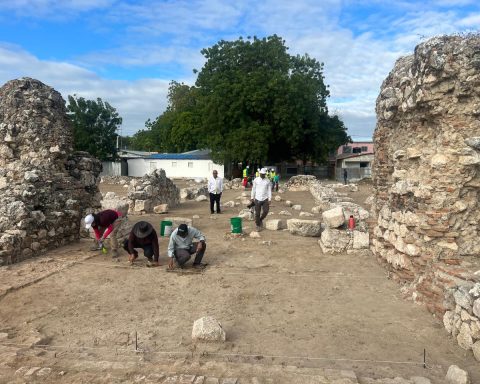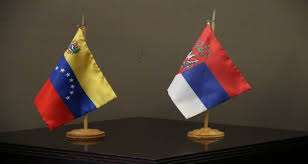President Alberto Fernández said this Thursday that “remembering the Holocaust hurts us and challenges us as humanity” and stressed that Argentina is the “only Latin American country” a full member of the International Holocaust Remembrance Alliance (IHRA for its acronym in English). .
The president and the foreign minister expressed themselves in this way on the International Day in Commemoration of the Victims of the Holocaust, in which the six million people murdered by Nazism are remembered.
In addition, Fernández stressed that Argentina is “the only Latin American country that is a full member of the International Holocaust Remembrance Alliance” (IHRA) and pointed out that “that is the value of memory; it mobilizes us to build better societies.”
Remembering the Holocaust hurts us and challenges us as humanity.
We are the only Latin American country that is a full member of the International Holocaust Remembrance Alliance. That is the value of memory; mobilizes us to build better societies.#Let’s remember #WeRemember pic.twitter.com/J6S88WMO5u
– Alberto Fernández (@alferdez) January 27, 2022
“Remembering the Holocaust hurts us and challenges us as humanity,” wrote the head of state on his Twitter social network account, referring to the International Day of Commemoration in Memory of the Victims of the Holocaust that is commemorated this Thursday.
Meanwhile, Cafiero, accompanied by the Ministers of Justice and Human Rights, Martín Soria, and of Education, Jaime Perczyk, led the act for the International Day in Commemoration of the Victims of the Holocaust held at the Holocaust Museum in Buenos Aires.
There were survivors of the Shoah living in Argentina, the president of the Museum, Marcelo Mindlin; DAIA and AMIA leaders and other officials and representatives of entities of the Jewish community.
“Remembering the Holocaust is a moral imperative for anyone who wants to build a society free of all kinds of racism, discrimination and xenophobia,” said Cafiero, who assured that “the testimonies of the survivors constitute unique contributions against oblivion and strengthen memory and education based on respect for human rights”.
The head of Palacio San Martín affirmed that “the Holocaust is inscribed in the collective memory of humanity as its most tragic chapter and marks the unpronounceable limits of the horror that it is possible to reach through the dehumanization of the other.”
“It constantly questions us about our future as human beings and as societies and is a permanent alert against the abyss,” he added.

The Foreign Ministry also highlighted the strong commitment of the Argentine Republic to the Memory of the Holocaust as part of its foreign policy on human rights in the area of atrocities prevention.
Argentina is the only Latin American country that is a full member of the International Holocaust Remembrance Alliance (IHRA) since the signing of the Stockholm Declaration in 2000.
Precisely President Alberto Fernández said that “remembering the Holocaust hurts us and challenges us as humanity” and stressed that “we are the only Latin American country that is a full member” of the IHRA.

The Alliance is an intergovernmental organization made up of 35 States whose objective is “to fight against acts of anti-Semitism, intolerance and discrimination that can lead to genocides such as those experienced by humanity in the 20th century”, and for this it addresses the issue from a triple perspective: education, remembrance and research.
Minister Perczyk expressed for his part that “the teaching of the Holocaust has been part of the educational agenda since 2007 and since then the Ministry of Education has supported educational policies of memory and approach to reflections around that extreme experience.” He added that from his portfolio “many materials have been produced in different media, to learn about and accompany the teaching of the Holocaust and other genocides.”
“It is essential to tell what happened and to put the events of the past in dialogue with a democratic and broad human rights agenda. There is no future without memory, without truth, without dignity and without justice,” Perczyk concluded.

His Justice peer, Soria, warned that “in these times where denialism, discrimination and violence have unfortunately once again become commonplace, we must turn on our alarms and make a double effort to keep the flame of memory alive.”
He added that “we know that the only way to never again commit crimes of this nature is by safeguarding truth and justice; educating future generations and confronting hatred and discrimination that can constitute a threat to the development of democratic societies. “.
Before the act, the ministers toured the Museum and passed through the Memory Room, where they left a stone in honor of the victims. Cafiero was moved after the tour and throughout the event.
In the ceremony, the survivors of the Holocaust performed the traditional ceremony of lighting the candles of the Jewish candlestick, in honor and memory of the six million victims of Nazism.
The first candle was lit by Moisés Borowicz. Moisés was born in 1917 in Poland and lived with his parents and his two brothers when the persecution of the Jews began; Before being locked up in the ghetto, they lived from hiding to hiding underground in a bunker that they made so as not to be discovered and trapped by the Nazis. They were deported: Moises and his brothers in one car and his parents in another. When the car came loose, Moisés lost his parents and one of his brothers who jumped off the train. From then on he was in seven concentration camps and today he resides in Argentina.
The candlelight ceremony ended with a minute of silence in tribute to the victims.

Mindlin stressed that “hosting this event confirms once again that the memory of the Shoah is a State policy in Argentina since the return to democracy,” and added: “We especially embrace the survivors who honor us with their presence and are our source of inspiration to build a better world”.
Eugenia Unger, a survivor of the Shoah, said in giving her testimony that “having an international day to commemorate the victims of the Holocaust is an achievement of our struggle, of all the testimonies we gave in these times.”
“We want to give our message to all of humanity: life is stronger than hate. Since we arrived in this country we have worked day and night to build this museum, of which I am proud to be one of the founders,” she stressed.

The message from the Secretary General of the United Nations Organization, António Guterres, was also read, who said: “Let us commit ourselves today never to be indifferent to the suffering of others, and to never forget what happened or let others forget it. Let us commit ourselves to always be vigilant and to defend the human rights and dignity of all people.”
International Holocaust Remembrance Day commemorates the liberation of the Auschwitz Birkenau concentration camp on January 27, 1945.

In 2005, the General Assembly of the United Nations (UN) approved Resolution A/RES/60/7, entitled Remembrance of the Holocaust, establishing the date of January 27 as the International Day in Commemoration of the Victims of the Holocaust, with character universal.
Since then and as an integral part of Argentina’s human rights policy and the commitments made within the framework of the International Holocaust Remembrance Alliance (IHRA), the commemorative act is held every January 27 in Argentina.
The Secretary of Worship, Guillermo Oliveri; the head of the Cabinet of Advisors Unit of the Ministry of Foreign Affairs, Luciana Tito; the resident coordinator of the United Nations System in Argentina, Luisa Brumana, and representatives of institutions that are part of the local chapter of the IHRA: DAIA, AMIA, Simon Wiesenthal Center, ICUF, BAMA, Active Memory and Jewish Argentinian Appeal.
Representatives of the Latin American Jewish Congress and the Tzedaká Foundation also took part.








